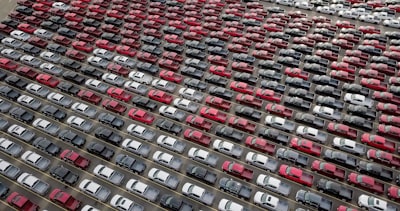The Great Mileage Mirage: How China's Car Exports Reveal Cracks in Global Auto Trade
China’s auto industry, celebrated for its meteoric rise, has now landed in hot water, accused of inflating export figures by labeling brand-new vehicles as "used." This novel accounting trick not only raises ethical questions but also exposes deep-seated vulnerabilities in global automotive trade and scrutiny.
The New “Used” Car Play: What’s Really Happening?
Chinese carmakers, facing intense competition and mounting inventories at home, have been shipping pristine vehicles abroad—slapping them with “used” labels to sidestep quotas, avoid tariffs, or unlock subsidies. For instance, some markets impose strict limits or duties on new cars, while accepting used vehicles more leniently. The result? A sudden surge in “used” car exports from China, consisting of barely-driven—or even unregistered—vehicles.
Winners, Losers, and the Global Ripple Effect
| Stakeholder | Potential Wins | Notable Risks or Losses |
|---|---|---|
| Chinese Carmakers | Higher sales numbers; clears inventory | Reputational damage; legal risks |
| Overseas Buyers | Access to low-mileage, cheaper "used" cars | Unclear warranty, legal ambiguity |
| Governments/Regulators | Short-term trade boost, tax revenues | Erosion of regulatory credibility |
| Competing Exporters | None | Unfair competition; price pressure |
An executive at a major export hub states, “This practice distorts the real strength of China’s automotive sector and undermines fair global competition.”
What’s Driving This Controversy?
Pressure to Perform: China’s auto sector is under massive political and market pressure to maintain its growth narrative. Inflating export numbers keeps the headline strong.
Regulatory Loopholes: Global definitions of what constitutes a “used” car vary widely, offering opportunity for exploitation.
Broader Trends: This tactic fits a larger pattern where excess industrial capacity—whether in steel, solar panels, or now vehicles—is offloaded on world markets, sometimes outpacing robust oversight.
Why It Matters: Trust and the Global Economy
If left unchecked, this practice could:
- Disrupt competitive balance, fostering mistrust between trading nations.
- Spark tit-for-tat regulatory crackdowns, harming legitimate exporters.
- Erode consumer confidence when buyers receive near-new cars with questionable status, warranty, or history.
The Road Ahead
To restore equilibrium, global regulators must harmonize definitions and inspection protocols. Carmakers—and the governments backing them—should focus on sustainable export growth, not statistical gimmickry.
Ultimately, honesty in numbers matters. As export-driven economies rise, so too does the need for transparent, enforceable standards that level the playing field and build international trust.
This article was inspired by the headline: 'Exclusive-China auto industry inflates sales by exporting new cars as 'used''.

Comments
No comments yet. Be the first to comment!